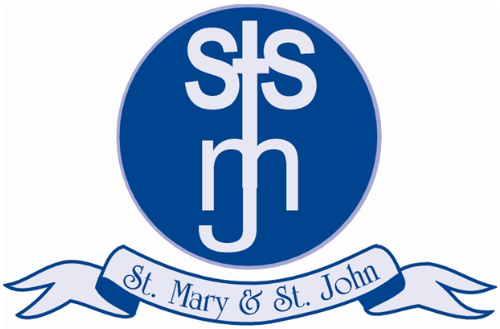How Literacy is taught at St. Mary and St John Catholic Primary School?
• Our Literacy curriculum provides a clear and comprehensive scheme of work that will show progression of skills from starting points in EYFS and across all key stages within the strands of Literacy and provides purposeful opportunities for reading, writing and discussion.
• Our curriculum allows children write clearly, accurately and coherently, adapting their language and style in and for a range of contexts, purposes and audiences.
• A range of stimuli to inspire writing is used: from books, films, topical news as well as cross curricular to other subjects.
• Spelling, grammar and punctuation are embedded within our Literacy curriculum as pupils are introduced to, and apply, grammar terms within their Literacy.
• Spelling in our school follows the ‘Little Wandle’ phonics approach where pupils are introduced to a range of graphemes and phonemes in EYFS before using them to understand and spell age-appropriate words. This phonics approach is developed further during KS1 and KS2 classes as pupils are introduced to different graphemes that show all the different phonemes at age-appropriate standards.
• Handwriting has a large focus in school through our handwriting scheme of work that allows pupils to develop their own handwriting style whilst being able to write fluently, legibly and, eventually, speedy handwriting.
• Pupils develop their love of reading through the use of the online ‘Reading Plus’ program which is an adaptive literacy intervention that develops the fluency, comprehension, and motivation students need to be successful readers.
• In EYFS and Key Stage 1, children improve phonics knowledge through ‘Little Wandle’ where they focus on blending and segmenting new sounds, decoding and developing in early reading through reading practice sessions. These reading sessions involve books that are pitched to match the phonic stages of the pupils to work on decoding, prosody and comprehension of texts.
• In Key Stage 2, reading adopts a whole-class approach where children are immersed in class novels that stretch their imagination and support the improvement in comprehension through discussions, book talk and independent work. Texts used in reading lessons are focused on different themes to link with other curriculum areas as well as topical issues. A range of reading styles are used in lessons from independent reading, echo reading and reading aloud.
• Children are given opportunities to read for pleasure through a bank of age appropriate texts that push children’s imaginations in a range of reading genres.
• Reading and writing is celebrated in school through weekly and termly reading and writing awards that are given to pupils who have excelled over a period of time.
• Whole-school reading challenges take place throughout the year to develop a love of reading. Extreme reading challenges ensure that pupils are reading for pleasure outside of school as well as during class-based activities.
• Writing challenges such as poetry competitions allow pupils to take part in intra-school and inter-school activities, giving the opportunity for pupils to excel in a range of writing contexts.
• The art of positive talk and discussion is focused upon in all year groups through turn-taking and agreeing and disagreeing in EYFS and KS1 to using debating topics to challenge thinking and creating a safe and challenging environment of discussion.


